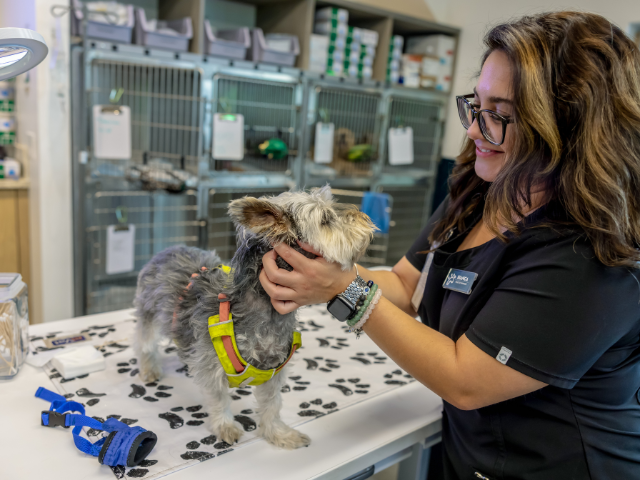
Dog Parasite Prevention and Treatment FAQs
When to Start Parasite Prevention
-
Start deworming and flea prevention for your puppy between 6-8 weeks of age. Heartworm prevention should follow soon after.
Types of Parasites
- Intestinal: Includes worms like roundworms, hookworms, and protozoan parasites like Giardia.
- External: Most commonly, fleas, ticks, ear mites, and lice.
How to Diagnose Parasites
- External: Usually visible. Additional tests like skin scrapings may be required.
- Intestinal: Typically diagnosed through fecal sample analysis.
Importance of Immediate Care
- If you suspect your pet has parasites, seek veterinary care immediately. Some parasites can also infect humans.
Treatment Options
- Oral Medications: Sentinel, a monthly pill, prevents worms and flea infestations.
- Topical Medications: Bravecto, effective for three months against fleas and ticks.
Treatment for All Pets in Home
-
If one pet has parasites, all pets in the household should be treated to avoid further transmission.
Parasites and Human Transmission
-
Some parasites can transfer from dogs to humans. Proper hand hygiene can mitigate this risk.
Effectiveness of Natural Treatments
-
Natural or over-the-counter remedies are generally ineffective and can be risky. Consult a vet for an appropriate treatment plan.
Home Prevention Measures
-
Use prescribed preventatives to keep your pet parasite-free. In case of a severe flea infestation, frequent vacuuming is advised.
